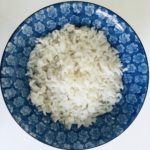 Q. I am concerned that my 2 1/2 year old daughter may have celiac. I am 37 and my 1st cousin on my father’s side has celiac disease, and my aunt (not her mother) on my father’s side had lupus (she has been dead over 30 years).
Q. I am concerned that my 2 1/2 year old daughter may have celiac. I am 37 and my 1st cousin on my father’s side has celiac disease, and my aunt (not her mother) on my father’s side had lupus (she has been dead over 30 years).
My daughter is about 33 inches tall and weighs 28 pounds. She is a very picky eater to begin with. She has about 3 to 5 bowel movements a day; these are all over the map in terms of consistency and size. She doesn’t stool at night and the colors of these BMs range from green to brown (never red, black, grey, or white). Sometimes I can see what she had eaten in them (i.e., grape skins) but she also doesn’t always chew her food in the first place!
We are going to see a pediatric gastroenterologist in our area. She has already had some labs done. I read another posting and will ask for the Prometheus Celia-Plus panel to be done. Here are the results from some blood work from Quest –
IgA Serum – = 51
Gliadin AB (IgA) = <3
TTG Ab IgA = <3
These are all in the normal range according to Quest.
We also did stool testing through Enterolab in Dallas.
A) Gluten Sensitivity Stool and Gene Panel Complete
Fecal Antigliadin IgA 222 (Normal Range <10 Units)
Fecal Antitissue Transglutaminase IgA 163 Units (Normal Range <10 Units)
Quantitative Microscopic Fecal Fat Score <300 Units (Normal Range <300 Units)
Fecal anti-casein (cow’s milk) IgA antibody 155 Units (Normal Range <10 Units)
HLA-DQB1 Molecular analysis, Allele 1 0201
HLA-DQB1 Molecular analysis, Allele 2 0301
Serologic equivalent: HLA-DQ 2,3 (Subtype 2,7)
These tests indicate that there is a definite problem – I guess gluten sensitivity and casein sensitivity. I don’t understand how 2 tests can be so different and the results came in within a week of each other; she has been on gluten and dairy the whole time and will continue to be until we meet with this pediatric gastroenterologist.
What is your thought on stool testing? I have not seen much positive response to it within the medical community online.
What should we specifically ask for when we meet? I guess a biopsy is needed to make a definitive diagnosis but I really, really don’t want to be so invasive with her. Any advice is much appreciated.
A. You should know that your daughter’s blood IgA levels are low, and that would make the IgA based antibody tests falsely normal. Secondly, commercial lab blood testing can be notoriously inaccurate, with sensitivity as low as 40% in some instances. The stool tests need to be validated in large scale trials with biopsy as the end point before they can be generally accepted. In your daughter’s instance, the tests strongly suggest celiac disease, but are confounded by the casein data: she needs an intestinal biopsy. My pediatric colleagues at California Pacific Medical Center are skilled and expert in this problem, and I’m sure that they can satisfy the situation. Please let me know how things are going, and I can arrange a consult with them for you.
Follow-up Q. You mentioned that the “casein intolerance confounds the issue.” I’m confused on that – does that mean that she MAY have only a casein problem? Do we need to eliminate one before the other? (casein before gluten, or whatever).
Follow-up A. Milk protein (casein) allergy can mimic the symptoms of celiac disease, but does not cause the same pathologic changes in the intestine as celiac. Therefore, an intestinal biopsy will resolve the issue.
Health and happiness,
Dr. Jeffrey Aron
Gastroenterologist, San Francisco
(Dr. Aron is no longer taking questions.)







Dru says
I’ve gathered good medical evidence that stool antibody testing is a valid test, and will detect gluten sensitivity prior to blood tests. Unfortunately there’s not a mountain of evidence and there won’t be for a long, long time after the medical community gives up their resistance to this type testing – due to the snail’s pace of medical research. I also don’t really need this medical evidence as there are many, many people in my celiac listserv community who have used the Enterolab tests as a basis to restore their health. I’m one of those people, who checked out completely normal after extensive testing at Scott & White, but decided to go gluten free after my Enterolab test. I’m not saying that stool antibody testing will lead to an “official” diagnosis of celiac disease, which requires the 50 year old positive biopsy standard. But you would be well-advised to rely on the results of the Enterolab tests and avoid much future misery. And BTW, recent medical studies with the pillcam show that celiac lesions can be found in the jejunum, which is not surveyed during the biopsy.
Tracy Bradley says
Agreeing with Dru here. Not everyone who has gluten intolerance will have villi damage anyway. Celiac disease is only one of the problems that gluten can lead to in sensitive people – and if it does develop, it can take a long time.
Personally, I quit eating gluten after doing an elimination diet, then adding gluten foods back to see what the effect was – not good. I then had testing done through Enterolab and it came back positive (as did the genetic test), but regardless the difference in my health (mentally and physically) being gluten free was more than enough for me to swear off the stuff for good.
It will cost nothing, and be totally un-invasive, to remove gluten-containing foods from her diet and see if things improve.
Jane says
I have just receivd my results from EnteroLab. Even after reading the results I am still a little confused on the diagnosis. I had been gluten free for 3 years and recently went on the gluten challenge at my Gastro’s request.
The question I have is: Should I be gluten and Casein Free, based on the following results and should I still have a biopsy done? I was on the gluten challenge for 10 weeks and then had the Gluten Sensitive Stool and Gene Panel completed. I am 38 and was diagnosed with osteoporosis at age 36 and have been dealing with other health issues. Could gluten or casein be the cause?
RESULTS:
Fecal Anti-tissue Transglutaminase IgA: 13 units (normal range <10 units)
Fecal Anti-gliadin IgA: 20 units (normal range <10 units)
Quantitative Microscopic Fecal Fat Score: <300 units ((normal range <300 units)
Fecal Anti-Casein Iga: 10 units (normal range <10 units)
HLA-DQB1 Molecular anaylsis, Allele 1 0301
HLA-DQB1 Molecular anaylsis, Allele 2 0303
Serologic equivalent: HLA-DQ 3,3 (SUBTYPE 7,9)
Thank you
alison says
Jane,
Didn’t Enterolab provide you with an explanation of the results? They usually do, and if they didn’t, you should ask them for one.
Here is a page from their website that explains the scores:
FAQs
It looks like you are over the normal range for gluten, meaning that you are gluten sensitive and should not be eating it. You have gluten sensitive genes, though they are not the ones most commonly found for celiac disease.
Did you ever have blood tests for celiac disease? Osteoporosis can be caused by celiac due to malabsorption of calcium.
stefanie says
Hi,
I have just received my blood tests and have no idea how to read them. I called my doctor this afternoon and got the nurse who told me that everything looks fine.
I feel horrible and have a hard time eating anything.
I can’t seem to find any kind of level ranges.
Please help!!!!
Gliadin IGA <3
Gliadin IGG 9
Thank You!
Alison says
Stefanie,
Are these the only tests that were done?
Lori says
I had the fecal anti-gliadin IgA test done. My results are 60 units. Is 60 units extremely high. What does it mean the higher the units >10 units.ie: 20 units vs 60 units.